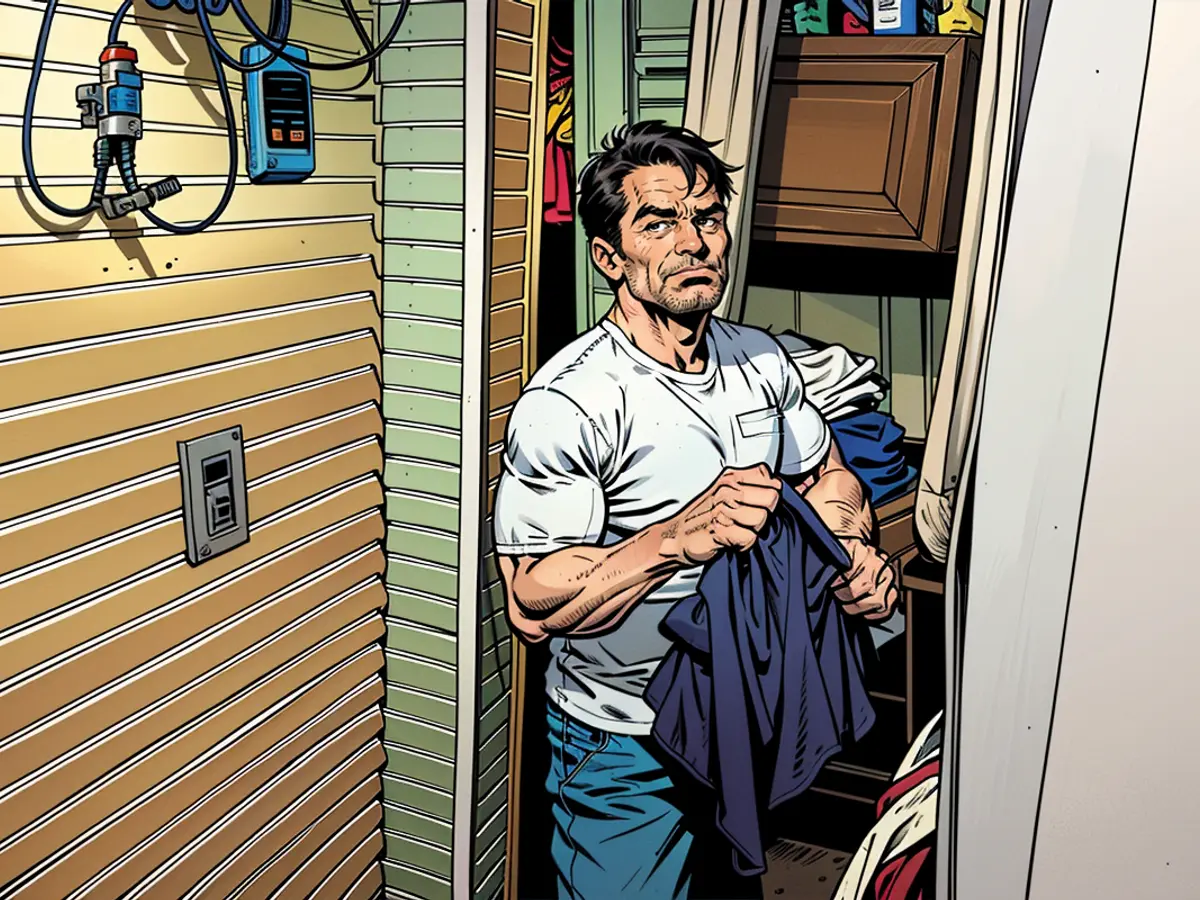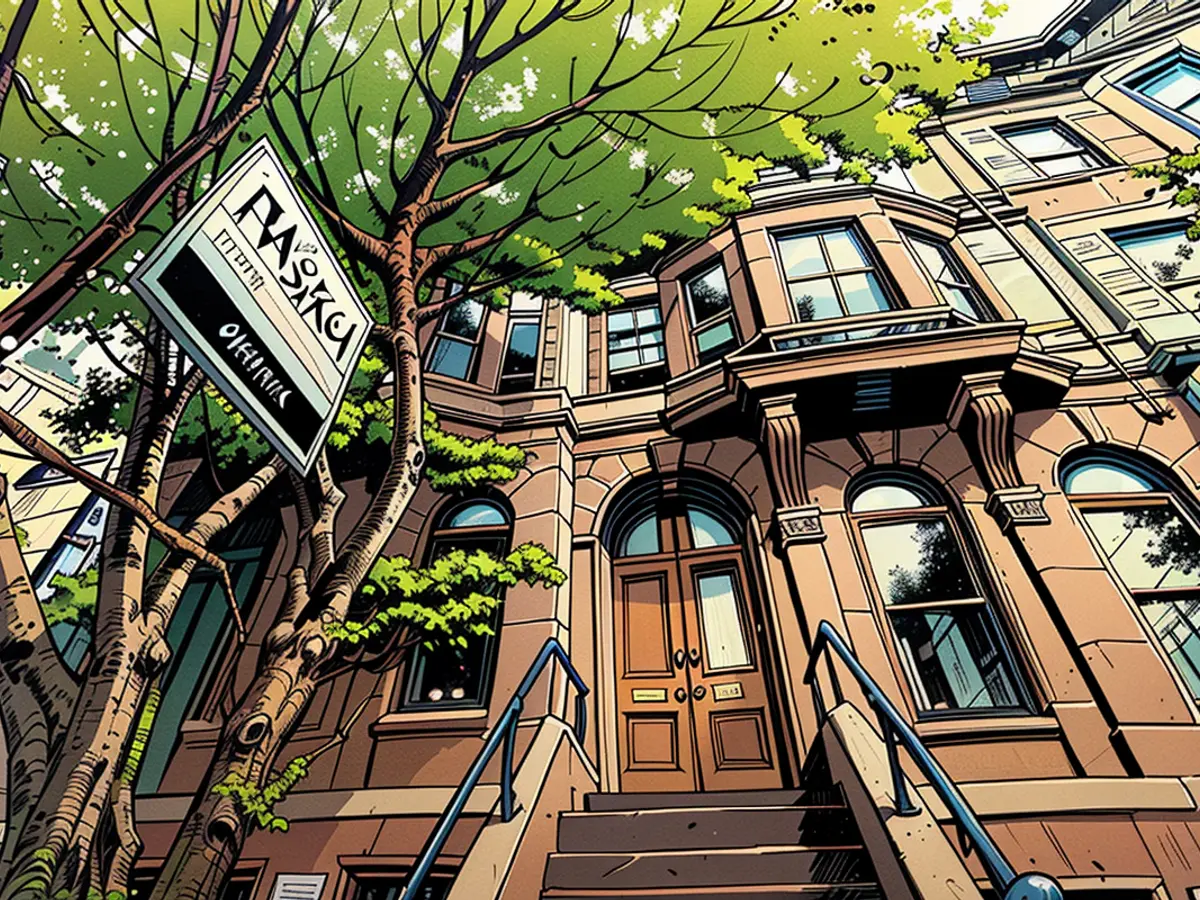Mortgage rates are ascending post the Federal Reserve's interest rate reduction.
The typical interest rate for a 30-year fixed mortgage stood at 6.54% during the week ending October 24, as reported by Freddie Mac after polling lenders. This is the highest level since mid-August, yet it still falls short of this year's peak of 7.22% seen back in May.
Mortgage rates experienced a significant decrease to a two-year low of 6.08% in late September, thanks to expectations of a Federal Reserve rate cut, but this momentum failed to boost home buying activity. Sales of pre-owned homes, which account for the majority of the market, decreased by 1% in September compared to the previous month, reaching a seasonally adjusted annual rate of 3.84 million, as reported by the National Association of Realtors on Wednesday. This marked the lowest sales rate since October 2010. Mortgage application numbers have also witnessed a decline over the past four weeks, plummeting to a level not seen since July, as per data from the Mortgage Bankers Association on Thursday.
Sluggish housing demand could be attributable to the fact that reduced rates arrived too late for many home buyers. Many families typically prefer to buy and sell properties during spring, when the weather is pleasant and they can plan ahead for the upcoming school year. Additionally, potential buyers might be holding out for even lower rates, given the Federal Reserve's commitment to continue decreasing lending costs until 2025.
Every percentage point change in mortgage rates has a significant impact on monthly payments. At the same time, a persistent scarcity of homes for sale continues to boost property prices. House prices rose for the 15th consecutive month in September, as per data from NAR, and have also seen a dramatic increase in home insurance costs in certain markets.
Here are the factors contributing to recent increases in mortgage rates.
Robust economic data
When the Federal Reserve reduced interest rates last month, many hoped it would reignite the stagnant housing market. Mortgage rates generally follow the 10-year US Treasury yield, which was anticipated to fall in response to more interest rate cuts. However, recent economic data has been stronger than predicted, leading market expectations to shift and boost bond yields.
For instance, the latest employment data released earlier this month showed that job growth in September exceeded expectations significantly. More recently, a separate report on consumer spending published last week showed that demand in the US economy remains stable. More data like this could moderate the pace of rate cuts.
According to Samuel Khater, Freddie Mac's chief economist, this has resulted in higher-than-normal volatility in mortgage rates despite a strengthening economy. "Over the last few years, there has been a tension between downbeat economic narratives and incoming economic data stronger than that narrative," he said.
The 10-year yield closed at 4.24% on Wednesday, marking the highest level since late July. Higher yields lead to lower bond prices, with investors requiring higher interest payments to hold government debt due to this.
Government finances
The bond market might be influenced by aspects related to the government's fiscal situation.
One such factor is the approaching presidential election and the increasing likelihood of former President Donald Trump winning another term. Some projections suggest that he and Vice President Kamala Harris could propose policies that would put additional strain on the federal budget in the coming years. A recent report from the nonpartisan Committee for a Responsible Federal Budget estimated that under a second Trump presidency, the US national debt could reach $7.5 trillion by 2035, in contrast to an increase of $3.5 trillion under a Harris presidency during the same period.

"We will be financially bankrupt quickly unless we concentrate on resolving our spending issues," billionaire investor Paul Tudor Jones told CNBC on Tuesday. "I will not be investing in any fixed income."
The government's fiscal situation might already be impacting mortgage rates.
"With this large budget deficit, whenever the government has to borrow, borrow, and borrow once more, it implies that there is less money available for mortgage lending into the housing market, given all other factors, which may also be limiting the potential for mortgage rate declines," Lawrence Yun, NAR's chief economist, said to reporters on Wednesday.
Patience is key
For Americans who struggle with finances, waiting for housing affordability to improve may be their best chance to achieve the dream of homeownership.
Kimberly Bradley, 22, and her husband, Zach, 23, have two toddlers. They rent a townhouse in Manteo, North Carolina, and are eager to buy a home, but they live paycheck to paycheck and have thus far failed to save enough for a down payment.
She stated that her family is waiting for reduced rates.
"I've been advised by many people to just go ahead and buy a house now, but I don't want to be stuck with a rate I don't like for years only to have to refinance," Kimberly said. "I want to know that the rate I have now is good and that I can rely on it for a while. That's my primary concern. I don't want to refinance. I want a good rate from the start."
For Ken Lowrey, a 27-year-old renting in Charleston, South Carolina, "homeownership is the epitome of security," he said.
However, his budget is being stretched thin with rising rent, and he mentioned that dealing with an unexpected health issue that wiped out the $7,000 he had saved resulted in using credit cards for daily expenses. "I have had to rely on my credit cards to cover everyday costs," he said.
Due to his aspiration to become a homeowner, he's postponed various life milestones like starting a family, saving for retirement, and even deciding on a career path entirely. Lowrey is also biding his time, hoping for an improvement in the market, either through reduced mortgage rates or a decrease in property prices, as he shared.
Despite the deceleration in mortgage application numbers and sluggish housing demand, many families might be holding out for even lower mortgage rates due to the Federal Reserve's commitment to continuing decreasing lending costs until 2025. The robust economic data, such as an increase in job growth and consumer spending, has shifted market expectations and boosted bond yields, leading to higher mortgage rates.









